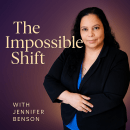Abundance Mindset Speakers
You've got a great event or podcast lined up, but you're stuck finding someone who brings real presence and value.
Not just buzzwords or recycled motivation, but someone who actually shifts perspectives.
So now you're wondering: how do I find the right abundance mindset speakers?
The kind who don't just talk about growth, but actually live it-and can help your audience do the same.
That's exactly what this guide helps with.
You'll get a clear look at who these abundance mindset speakers are, what they bring to the table, and how they connect with audiences across industries.
They specialize in reframing scarcity thinking, encouraging bold decisions, and helping teams and individuals tap into a different level of thinking.
I've seen how the right speaker can completely change the tone of a room-and how the wrong one can leave people checking their phones.
Whether you're curating a summit, lining up podcast guests, or planning next quarter's team retreat, these abundance mindset speakers are worth your shortlist.
Dive in and find the right voice for your audience.
Top Abundance Mindset Speakers List for 2026
Jane Slack-Smith
Explosives expert turned wealth architect, condition crusher, fusing science, Ai, soul & smart strategy to exit the matrix
Dharmendra Sorathiya
Transforming lives, aligning karma, and unlocking abundance daily
Jennifer Benson
Change the way you see yourself — change the way the world sees you.
Theresa Lear Levine
From Overwhelm to Abundance
Dagmar Fleming
Energetic alignment meets business success—because mindset alone isn’t enough!
Ann C.K. Nickell
Live on The Upside and create an amazing life story movie that leaves a legacy!
Aleksandra Rehar
Empowering you to lead with purpose and authenticity
Kim Carson-Richards
Marketing and mindset strategist helping impact-driven leaders ditch the overwhelm and own the mic
J. Lumen
Some people flip houses, others flip tables. I flips lives by flipping your switch!
Maria Perry
Empowering healers to thrive: Transform trauma into treasure
What Makes a Great Abundance Mindset Speaker
Think about someone like Lisa Nichols. When she walks on stage, she brings energy that fills the room. She doesn't just talk about abundance-she radiates it. That's what makes a speaker unforgettable. It's not about hype or buzzwords. It's about authenticity, clarity, and the ability to shift perspectives in real time.
Great abundance mindset speakers are also deeply self-aware. They understand their own journey and use it to inspire others without turning it into a therapy session. They're storytellers, but they're also facilitators of transformation. Whether they're speaking to a group of startup founders or a room full of educators, they tailor their message to meet people where they are.
And let's not forget delivery. The best speakers know how to pace their message, use silence strategically, and engage the audience without relying on slides or gimmicks. They're present. They listen. They adapt. That's what separates a good speaker from a great one in this space.
So if you're scouting for someone to speak about abundance, look beyond the surface. Ask: Do they live what they teach? Can they shift a room's energy? Do they leave people thinking differently? That's the gold standard.
How to Select the Best Abundance Mindset Speaker for Your Show
1. Define Your Audience and Outcome.
- Who are you serving? Entrepreneurs? Coaches? Corporate teams?
- What transformation do you want your audience to experience? Clarity? Confidence? Strategy?
- This clarity helps you filter out speakers who might be great-but not great for your people.
2. Research Speaker Profiles on Platforms Like Talks.co.
- Use Talks.co to browse abundance mindset speakers by topic, industry, and availability.
- Look at their speaker pages: Do they have video clips? Testimonials? Clear topic outlines?
- Bonus tip: Prioritize speakers who customize their talks for different audiences.
3. Watch Them in Action.
- YouTube, podcast interviews, or virtual summits are goldmines.
- Are they engaging? Do they offer actionable insights or just high-level fluff?
- Look for speakers who balance inspiration with strategy.
4. Check for Alignment with Your Brand.
- Does their tone match your show's vibe-casual, professional, edgy, spiritual?
- Do they promote similar values? (e.g., inclusivity, innovation, integrity)
- If you're building a community, you want someone who feels like part of the tribe.
5. Reach Out and Ask Smart Questions.
- What's your core message around abundance?
- How do you tailor your talk for different audiences?
- Can you share a moment when your message really landed with a group?
Selecting the right speaker is like matchmaking. When it clicks, the impact is unforgettable.
How to Book a Abundance Mindset Speaker
1. Start with a Shortlist.
- Use platforms like Talks.co to create a shortlist of speakers who align with your topic and audience.
- Look for those with strong speaker pages-bios, video samples, and clear topic descriptions.
2. Reach Out with a Clear Ask.
- Send a concise message outlining:
- Your event or show name.
- Audience type and size.
- Date, time, and format (live, recorded, virtual, in-person).
- What you'd like them to speak about.
- Example: "Hi [Name], I'm hosting a virtual summit for female entrepreneurs focused on mindset and growth. Would you be available to speak on cultivating abundance in business?"
3. Discuss Logistics Early.
- Confirm availability, time zones, and tech setup.
- Ask about their preferred format: keynote, Q&A, panel, workshop?
- Clarify honorarium or speaker fee, if applicable.
4. Share Promotional Expectations.
- Will they be expected to promote the event?
- What assets will you provide (graphics, swipe copy, links)?
- Be clear but flexible-some speakers have large audiences, others are more niche.
5. Confirm with a Simple Agreement.
- Even if it's a free gig, send a short agreement outlining:
- Date and time.
- Topic and format.
- Any deliverables (e.g., slides, bio, headshot).
- Cancellation policy or backup plan.
6. Follow Up and Support.
- Send reminders, tech check links, and updates.
- Be available for questions.
- After the event, thank them and share feedback or audience reactions.
Booking a speaker is part logistics, part relationship-building. Make it easy for them to say yes, and they'll bring their best to your stage.
Common Questions on Abundance Mindset Speakers
What is a abundance mindset speaker
At the core, an abundance mindset is the belief that there's more than enough to go around-more ideas, more success, more love, more time. It's the opposite of the zero-sum game mentality. Abundance mindset speakers help audiences recognize limiting beliefs and replace them with empowering ones.
These speakers often come from diverse backgrounds: psychology, entrepreneurship, education, spirituality, or even sports. For example, someone like Tony Robbins blends personal development with business strategy, while someone like Marie Forleo brings creativity and optimism to entrepreneurial audiences. Both speak to abundance, but in very different ways.
What sets them apart from general motivational speakers is their focus on mindset as a tool for transformation. They don't just hype people up-they offer frameworks, stories, and tools that help people rewire how they think about success and contribution.
Whether they're speaking at a corporate retreat, a virtual summit, or a community event, their goal is the same: to help people see more possibilities and take action from a place of confidence and clarity.
Why is a abundance mindset speaker important
In business, this matters more than ever. Entrepreneurs facing burnout or competition need to learn how to see collaboration instead of rivalry. Teams navigating change need to believe in new possibilities. An abundance mindset speaker helps unlock that shift.
In education, speakers like these can help students and teachers alike move beyond fixed mindsets. Instead of thinking 'I'm not good at math' or 'This system is broken,' they start asking 'What's possible if I try a different approach?'
In communities recovering from crisis-economic, social, or environmental-abundance mindset speakers can offer hope grounded in action. They don't promise magic. They offer perspective, resilience, and a path forward.
The importance of these speakers lies in their ability to help people see what they couldn't see before. That's not fluff-it's transformation. And in a world where fear and scarcity dominate headlines, that kind of shift is not just helpful... it's essential.
What do abundance mindset speakers do
1. Deliver Keynotes and Workshops. They speak at events, summits, and conferences, often tailoring their message to the audience-whether it's entrepreneurs, educators, or corporate teams. Their talks might focus on topics like overcoming scarcity thinking, building wealth with purpose, or creating collaborative cultures.
2. Offer Practical Frameworks. These speakers don't just inspire-they teach. They often share models like Carol Dweck's growth mindset, Stephen Covey's abundance principles, or their own signature systems. The goal is to give audiences tools they can apply immediately.
3. Facilitate Mindset Shifts. Through storytelling, exercises, and interactive moments, they help people identify limiting beliefs and replace them with empowering ones. For example, a speaker might guide a group through a visualization exercise to reframe their relationship with money or success.
4. Consult with Organizations. Some abundance mindset speakers also work behind the scenes, helping companies build cultures of abundance. This might involve leadership training, team coaching, or strategic advising.
5. Create Content and Courses. Many speakers expand their reach through books, online programs, or social media. For instance, someone like Gabby Bernstein uses Instagram, YouTube, and digital courses to share abundance principles with a global audience.
In short, abundance mindset speakers are educators, motivators, and change agents. They help people see more, believe more, and do more-starting with how they think.
How to become a abundance mindset speaker
1. Define Your Core Message.
- What does abundance mean to you? Is it financial freedom, emotional resilience, or spiritual growth?
- Choose a niche: business, wellness, education, or personal development.
- Tip: Study speakers like Bob Proctor or Lisa Nichols to see how they tailor their abundance messages.
2. Build Your Expertise.
- Start a blog, podcast, or YouTube channel focused on abundance mindset topics.
- Get certified in coaching or psychology if relevant to your audience.
- Read widely: Thinkers like Napoleon Hill and Carol Dweck offer foundational ideas.
3. Create Your Speaker Page.
- Use platforms like Talks.co to showcase your bio, topics, testimonials, and past talks.
- Include a short video reel of you speaking, even if it's just from a local meetup or webinar.
4. Start Speaking - Anywhere.
- Volunteer at schools, local events, or online summits.
- Use Talks.co to connect with event hosts looking for abundance mindset speakers.
- Record every talk and gather feedback to improve.
5. Network and Collaborate.
- Join speaker groups on LinkedIn or Facebook.
- Attend virtual summits and connect with other speakers and hosts.
- Offer to co-host webinars or panels to increase your visibility.
6. Monetize and Scale.
- Package your talks into workshops or courses.
- Offer coaching or consulting services.
- Build a mailing list to stay in touch with your audience.
Remember, every top speaker started somewhere. Focus on value, consistency, and connection, and your message will grow.
What do you need to be a abundance mindset speaker
1. Deep Understanding of Abundance Principles
Abundance mindset isn't just about being optimistic. It's about shifting from scarcity thinking to a belief in limitless possibilities. This includes:
- Reframing failure as feedback.
- Practicing gratitude and visualization.
- Teaching others how to rewire limiting beliefs.
2. Strong Communication Skills
You must be able to articulate complex ideas in simple, relatable ways. This means:
- Storytelling that resonates across cultures and industries.
- Using metaphors, humor, and data to drive your point home.
- Adapting your delivery for live, virtual, or hybrid events.
3. Personal Brand and Online Presence
Your audience needs to find and trust you. That means:
- A professional speaker page (Talks.co is a great place to start).
- Active social media presence where you share insights and engage.
- Testimonials or case studies that prove your impact.
4. A Clear Offer
What are you offering? A keynote? A workshop? A coaching program? Be specific.
- Define your signature talk.
- Create packages for different event types.
- Make it easy for hosts to book you via platforms like Talks.co.
5. A Willingness to Learn and Evolve
The best speakers are always learning. Stay updated on:
- Neuroscience and mindset research.
- Audience engagement tools (like polls, breakout rooms).
- Trends in virtual and hybrid events.
Being an abundance mindset speaker is about walking the talk. When you embody what you teach, your influence multiplies.
Do abundance mindset speakers get paid
The Short Answer:
Most professional abundance mindset speakers earn income from speaking engagements, but the range varies widely based on experience, audience size, and delivery format.
Factors That Influence Payment:
- Experience Level: New speakers may speak for free or a few hundred dollars. Seasoned speakers can command $5,000 to $25,000+ per talk.
- Audience Type: Corporate events and international conferences often pay more than local community events or schools.
- Format: In-person keynotes tend to pay more than virtual webinars, though the latter offers scale.
- Reputation: If you're a published author or have a large following, you can charge premium fees.
Pros of Paid Speaking:
- Immediate income.
- Builds authority and opens doors to coaching, consulting, or product sales.
Cons:
- Income can be inconsistent.
- Travel and prep time may reduce hourly value.
Data Snapshot:
| Speaker Level | Typical Fee Range |
|---|---|
| Beginner | $0 - $500 |
| Intermediate | $500 - $5,000 |
| Expert/Author | $5,000 - $25,000+ |
How do abundance mindset speakers make money
1. Paid Speaking Engagements
- Keynotes at conferences, corporate retreats, and summits.
- Virtual events or webinars hosted by companies or platforms like Talks.co.
- Panel discussions or fireside chats.
2. Online Courses and Workshops
- Many speakers turn their signature talks into digital courses.
- Platforms like Teachable or Kajabi make it easy to scale.
- Example: A speaker might offer a 6-week abundance mindset bootcamp for $497 per student.
3. Coaching and Consulting
- One-on-one or group coaching programs.
- Consulting for organizations looking to shift company culture toward abundance thinking.
- Example: A corporate client might pay $10,000 for a 3-month mindset training program.
4. Books and Digital Products
- Self-published books, eBooks, or workbooks.
- Audio programs or guided meditations.
- Example: Lisa Nichols sells both books and digital mindset programs.
5. Affiliate and Partnership Revenue
- Promoting tools, courses, or events aligned with abundance principles.
- Hosting summits or podcasts with sponsored segments.
6. Membership Communities
- Monthly subscription groups offering exclusive content, live Q&As, and community support.
- Example: A $29/month membership with 200 members brings in nearly $6,000/month.
The most successful speakers don't rely on one source. They build an ecosystem around their message.
How much do abundance mindset speakers make
Entry-Level Speakers
- Typically earn $0 to $500 per talk.
- Often speak for free to build credibility or gain testimonials.
- May rely on coaching or product sales for income.
Mid-Level Speakers
- Earn between $1,000 and $5,000 per engagement.
- Often have a published book or strong online presence.
- Supplement income with online courses or group coaching.
Top-Tier Speakers
- Can command $10,000 to $50,000+ per keynote.
- Often appear on national media or run large events.
- Example: Tony Robbins reportedly charges over $100,000 for private corporate events.
Income Streams Breakdown:
| Revenue Stream | Potential Monthly Income |
|---|---|
| Speaking Engagements | $2,000 - $20,000 |
| Online Courses | $1,000 - $50,000 |
| Coaching Programs | $2,000 - $30,000 |
| Book Sales | $500 - $5,000 |
| Membership Sites | $1,000 - $10,000 |
- Audience size and type (corporate vs. consumer).
- Marketing reach (email list, social media, Talks.co profile).
- Frequency of speaking gigs.
In short, abundance mindset speakers can make anywhere from a few thousand to multiple six figures annually, depending on how they structure their business.
How much do abundance mindset speakers cost
1. Speaker Experience and Reputation
- Beginner Speakers: $0 - $500. Often speak for exposure or testimonials.
- Mid-Level Speakers: $1,000 - $5,000. May have a book, podcast, or online following.
- Top-Tier Speakers: $10,000 - $50,000+. Includes well-known names like Lisa Nichols or Les Brown.
2. Event Type and Format
- Virtual Events: Typically 30-50% less than in-person.
- Workshops or Trainings: May charge per hour or per day (e.g., $2,000/day).
- Keynotes: Usually command the highest fees.
3. Location and Travel
- International events may require travel fees, accommodations, and per diem.
- Some speakers waive travel costs if the speaking fee is high enough.
4. Customization and Deliverables
- Custom talks or workshops may cost more.
- Add-ons like follow-up coaching, Q&A sessions, or digital resources can increase the price.
Sample Pricing Table:
| Speaker Tier | Virtual Talk | In-Person Keynote |
|---|---|---|
| Beginner | $0 - $300 | $300 - $800 |
| Mid-Level | $500 - $2,000 | $2,000 - $5,000 |
| Expert | $3,000+ | $10,000 - $50,000+ |
Who are the best abundance mindset speakers ever
1. Napoleon Hill
- Author of 'Think and Grow Rich'.
- Pioneered the idea that thoughts become things.
2. Bob Proctor
- Featured in 'The Secret'.
- Known for teaching the Law of Attraction and abundance thinking.
3. Wayne Dyer
- Blended spirituality with personal development.
- His talks on abundance and intention remain widely shared.
4. Louise Hay
- Founder of Hay House Publishing.
- Advocated self-love and affirmations as tools for abundance.
5. Jim Rohn
- Mentor to Tony Robbins.
- Focused on personal responsibility and mindset shifts.
6. Zig Ziglar
- Known for motivational speaking with a strong abundance undertone.
- Famous quote: 'You can have everything in life you want, if you will just help other people get what they want.'
7. Les Brown
- Powerful storyteller and motivator.
- Encouraged people to believe in their greatness.
8. Earl Nightingale
- His audio program 'The Strangest Secret' is a classic on abundance thinking.
These speakers laid the foundation for today's abundance mindset movement. Their work continues to inspire millions worldwide.
Who are the best abundance mindset speakers in the world
1. Lisa Nichols (USA)
- Dynamic speaker and author of 'Abundance Now'.
- Known for her emotional storytelling and practical tools.
2. Jay Shetty (UK/USA)
- Former monk turned speaker and author.
- Combines ancient wisdom with modern mindset strategies.
3. Robin Sharma (Canada)
- Author of 'The 5AM Club'.
- Focuses on personal mastery and abundance through discipline.
4. Marie Forleo (USA)
- Entrepreneur and speaker.
- Promotes abundance in business and life through mindset and action.
5. Vishen Lakhiani (Malaysia/USA)
- Founder of Mindvalley.
- Speaks globally on abundance, consciousness, and entrepreneurship.
6. Mel Robbins (USA)
- Known for 'The 5 Second Rule'.
- Helps audiences break through fear and scarcity thinking.
7. Sadhguru (India)
- Spiritual teacher with a global following.
- Talks about abundance from a consciousness and energy perspective.
8. Trent Shelton (USA)
- Former NFL player turned motivational speaker.
- Focuses on self-worth and abundance through healing.
9. Peter Diamandis (USA)
- Tech entrepreneur and futurist.
- Talks about abundance from a global innovation perspective.
10. Mo Gawdat (Egypt/UK)
- Former Google X executive.
- Author of 'Solve for Happy', promoting abundance through engineering happiness.
These speakers span industries from tech to spirituality, showing that abundance mindset is a universal message with global relevance.
Common myths about abundance mindset speakers
1. Myth: Abundance mindset speakers just preach positivity.
This is a common misunderstanding. While positivity is part of the message, abundance mindset speakers are not just cheerleaders. They often dive deep into neuroscience, behavioral psychology, and real-world strategy. Take Lisa Nichols, for example. She doesn't just talk about 'thinking big'-she teaches frameworks for rewiring limiting beliefs and building sustainable habits that support abundance.
2. Myth: You have to be wealthy to speak about abundance.
False. Many abundance mindset speakers started from scarcity. Their credibility often comes from the fact that they've lived through financial struggle, emotional hardship, or systemic barriers. Their journey from lack to abundance is what makes their message resonate. Think about someone like Les Brown, who grew up in poverty and now speaks globally about possibility and mindset.
3. Myth: It's all fluff with no practical value.
Not even close. The best abundance mindset speakers blend inspiration with implementation. They offer tools-journaling prompts, visualization exercises, goal-setting systems-that audiences can use immediately. In corporate settings, these speakers are often hired to shift team culture, improve performance, and reduce burnout.
4. Myth: Only spiritual or wellness audiences care about this.
Actually, abundance mindset principles are being embraced across industries-from tech startups in Berlin to real estate firms in Atlanta. Leaders are realizing that mindset affects productivity, innovation, and resilience. Abundance isn't just a spiritual concept-it's a business strategy.
5. Myth: You need a perfect life to be an abundance mindset speaker.
Nope. In fact, vulnerability is a strength in this field. Audiences connect with speakers who are honest about their struggles and how they overcame them. Authenticity beats perfection every time. Brené Brown's work on vulnerability has helped shift this narrative in the speaking world too.
Case studies of successful abundance mindset speakers
Take Bob Proctor. Before he became a global figure in personal development, he was a high school dropout working low-wage jobs. After reading 'Think and Grow Rich', he began applying abundance principles to his own life. Over time, he built a multi-million-dollar business teaching others how to shift their mindset. His story is a classic example of someone who lived the transformation before teaching it.
Then there's Marie Forleo. She didn't start as a mindset expert. She was a dancer, bartender, and even worked on Wall Street before launching her coaching business. Her message of 'everything is figureoutable' is rooted in abundance thinking-believing that solutions exist even when they're not obvious. Today, she's a bestselling author and speaker who blends mindset with marketing.
In South Africa, Vusi Thembekwayo has made waves as a speaker who integrates abundance thinking into entrepreneurship. Coming from a modest background, he now speaks to global audiences about scaling businesses and shifting mental models. His talks often blend economic data with mindset shifts, showing that abundance isn't just personal-it's systemic.
And let's not forget Lisa Nichols. Once a single mom on public assistance, she used her own transformation to fuel her message. Her talks are raw, powerful, and deeply practical. She doesn't just speak about abundance-she embodies it. Her company, Motivating the Masses, has helped thousands of people shift from survival to success.
These stories aren't just inspiring-they're instructional. They show that abundance mindset speakers don't come from a mold. They come from experience, reflection, and a desire to help others rise.
Future trends for abundance mindset speakers
First, we're seeing a growing demand for culturally contextualized messaging. Audiences in Southeast Asia, Latin America, and Africa are looking for speakers who understand local challenges and opportunities. This means abundance mindset speakers who can adapt their message across cultures will stand out.
Second, hybrid formats are becoming the norm. It's not just about keynote stages anymore. Speakers are building digital ecosystems-online courses, podcasts, private communities-that extend their message beyond the stage. Think of it as the 'Netflix model' of personal development: always on, always accessible.
Third, data-backed content is gaining traction. Audiences are more skeptical now. They want to know that mindset shifts are grounded in neuroscience, psychology, or real-world case studies. Speakers who can cite studies or integrate performance metrics into their talks will gain more credibility.
Here are a few key trends to watch:
- Micro-niche positioning: Speakers focusing on abundance in specific sectors (like abundance in tech innovation or abundance in rural entrepreneurship) are gaining traction.
- AI-powered coaching tools: Some speakers are integrating AI chatbots or journaling apps that help users implement abundance practices daily.
- Corporate wellness integration: Companies are hiring abundance mindset speakers not just for motivation, but as part of long-term wellness and leadership programs.
- Interactive speaking formats: Workshops, live Q&As, and audience polling are replacing static keynotes. Engagement is the new authority.
The bottom line? The future belongs to speakers who are adaptable, data-savvy, and deeply human in their message. Abundance isn't just a mindset-it's a movement, and it's evolving in real time.
Tools and resources for aspiring abundance mindset speakers
1. Talks.co. This is a podcast guest matching tool that helps you get booked on relevant shows. It's perfect for building credibility and reaching niche audiences who care about mindset and growth.
2. Mindvalley Speaker Certification. Mindvalley offers a speaker training program that focuses on transformational speaking. It's especially useful if you want to blend personal development with stage presence.
3. Kajabi. This all-in-one platform lets you create online courses, host webinars, and build email funnels. Many abundance mindset speakers use Kajabi to monetize their message beyond live events.
4. Notion. Use Notion to organize your speaking topics, track outreach, and document client feedback. It's flexible and great for managing your speaking business.
5. Calendly. Make it easy for event organizers or podcast hosts to book you. Set up different meeting types for discovery calls, interviews, or coaching sessions.
6. Canva. Whether you're designing your speaker one-sheet or creating slides for your next talk, Canva makes it easy to look polished without hiring a designer.
7. Audacity or Descript. These tools help you record and edit your talks, whether you're creating a podcast or refining your keynote delivery.
8. LinkedIn. Don't underestimate the power of this platform. Share short clips of your talks, write posts about abundance principles, and connect with event organizers in your niche.
Each of these tools serves a different purpose, but together they form a solid foundation for any aspiring abundance mindset speaker. Pick a few to start with and build from there. The key is consistency and clarity in your message.









